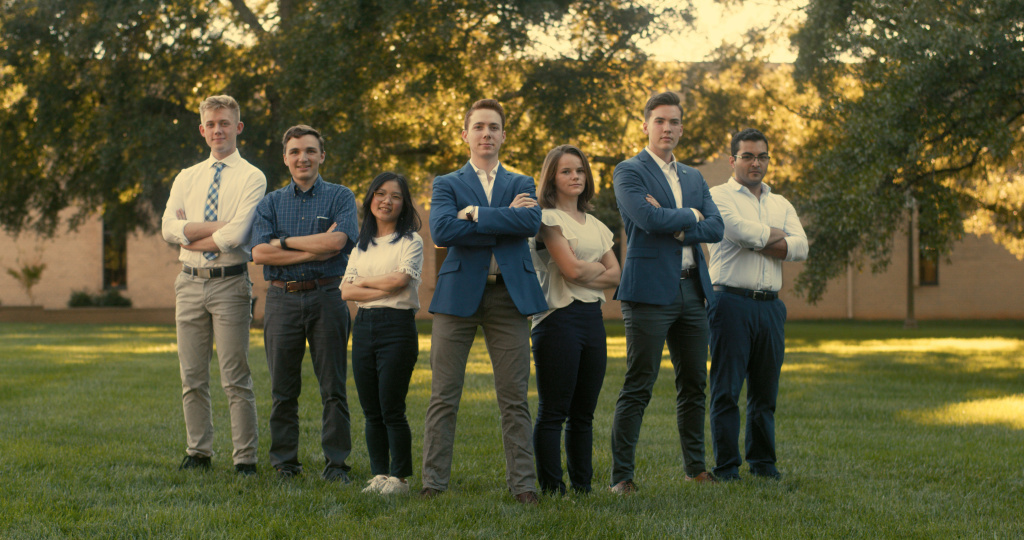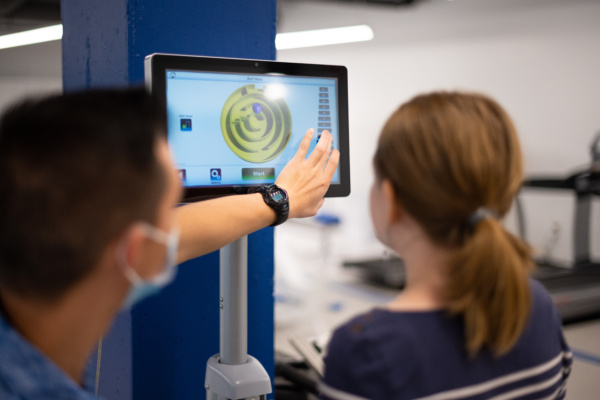Students in BJU’s interdisciplinary Global Challenges class have been recognized as among the next generation of innovators.
The student-led BJU team was among five winners — the only Christian liberal arts university selected and lone representative from the Carolinas — of $100,000 in the measurement, reporting and verification technologies track of the $5 million XPRIZE Carbon Removal Student Competition underwritten by the Musk Foundation and announced Nov. 10.
The other track focused on carbon dioxide removal demonstrations. Overall, 23 institutions representing 10 countries received awards. Nearly 200 university-affiliated proposals were received.
Gaining Real-World Experience
The Global Challenges class highlights a component of BJU’s 2021–24 strategic plan to provide learning and living experiences that focus on student success, in part, through collaborative teams to create high-impact learning experiences and effective student services.
“This is the type of experience that I think exemplifies our desire to give students high-quality experiences that demand much more than just specific knowledge, but the actualization of an entire range of skills accumulated throughout their college career,” said Dr. David McKinney of the Division of Natural Science, one of the faculty mentors. “We are not static; we are in motion striving to provide the best opportunities we can for our students.
“I am excited to see that the months of hard work that students poured into the project have gained them such a generous award, but more importantly that they gained real-world learning experience that will help prepare them for their future careers.”
Digging into the Project
The BJU team proposed the development of an improved CO2 sensor for monitoring carbon sequestration in soil.
Criteria for the Measurement, Reporting and Verification Technologies track included the development of technologies that may not directly remove CO2, but will enable carbon removal. Technologies or methodologies for improving the standards of assessment, or the precision, accuracy and time required for carbon measurements, were considered.
Facing a tight deadline to prepare their proposal submission, the seven undergraduate students in engineering, science and business programs began the class with online sessions three weeks before arriving on campus. They conducted initial field research with a prototype sensor.
“(The inaugural three-credit Global Challenges class) was more successful than I imagined,” said Dr. Bill Lovegrove, head of the Department of Engineering and a faculty mentor. “A lot of unknowns, a lot of challenges (to submit the proposal by the Oct. 1 deadline). The students commented in their reflections (a component of class requirements) — part of an experiential learning process — about what they learned and what it was like, what worked.
“Almost all commented on the interdisciplinary experience and working with students from completely different programs and how that was good, how that added to the strength of the team. All of those are what interdisciplinary projects are about.”
Just Getting Started
The Global Challenges class is complete, but “the project is just starting,” Lovegrove said. Work will continue in spring and through a 10-week summer session to fulfill the next steps, which include constructing a sensor with wireless data collection capabilities. A business/marketing plan and preparing to sell the device through a company created, Soil Economy, is also part of the long-term project.
“The XPRIZE win shows what can be accomplished when students and faculty collaborate in multidisciplinary teams,” said Dr. Adele Dunn of the Division of Management and a faculty mentor to the group. “The ability to collaborate across disciplines is at the heart of innovation, and I am excited that our students are developing these competencies which will be vital in their future careers. This is core to the BJU learning approach.”
Global Challenges will likely join other interdisciplinary project-based classes that are part of the BJU curriculum.
“It will be a completely different project. There are dozens of these competitions open to students to work on big problems and make proposals. We’ll start over with another team and another idea, but this is great because the effects of the class now ripple,” Lovegrove said. “Just the experience of entering this contest was a great educational activity. That’s the point of Global Challenges.”
Meet the Team
Comprising the student team are senior engineering major Benjamin Withrow of Clayton, North Carolina; senior engineering major Daniel Oyarzun of Des Plaines, Illinois; sophomore biology major Tricy Yue of China; senior chemistry major Lydia Flynn of Libertytown, Maryland; sophomore business administration major Joseph Simpson of Arlington, Tennessee; junior business administration major Reagan Riddell of Snow Camp, North Carolina; and Steven Platt of Carmel, Indiana.
In addition to Dunn, Lovegrove and McKinney, Dr. Brian Vogt of the Department of Chemistry and Physics is a mentor.








